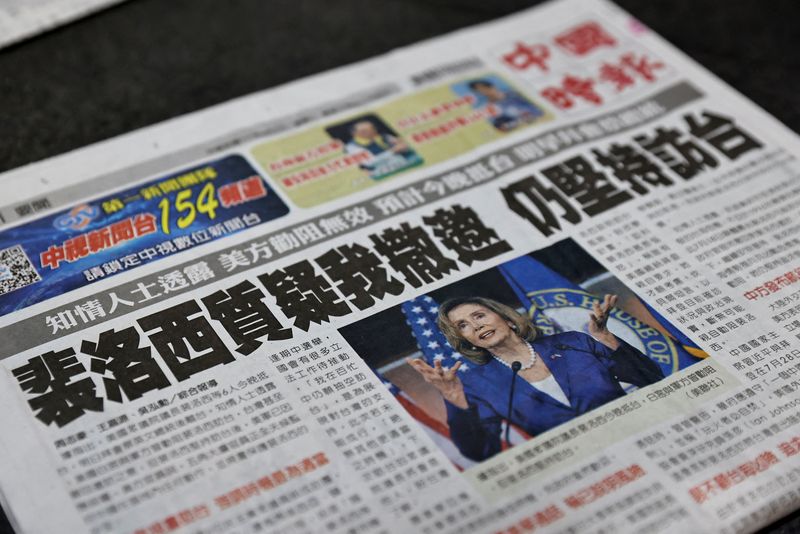Taiwan at the center of the US-China conflict
2022.12.06 07:29
[ad_1]

Taiwan at the center of the US-China conflict
Budrigannews.com – In defiance of Chinese warnings, U.S. House Speaker Nancy Pelosi went to Taiwan in August and met Taiwanese President Tsai Ing-wen.
Incensed at what it saw as U.S. support for Taiwan’s true freedom – a red line for Beijing – China sent off war games close to the island it claims as its “consecrated” an area not long after Pelosi left.
For the first time, the Chinese military fired missiles at Taipei, flew waves of drones over some of Taiwan’s offshore islands near the Chinese coast, sailed warships across the median line of the Taiwan Strait, and surrounded the island in what Taiwan’s military called a “practical blockade,” according to the military.
Since Beijing fired missiles into the waters off Taiwan’s coast prior to the 1996 Taiwanese presidential election in an effort to discourage people from voting for Lee Teng-hui, whom the Chinese government considered to be a separatist, military tensions between Taiwan and China had not been as high.
That misfired and Lee helpfully won the political decision.
As a result of Tsai’s refusal to accept Beijing’s long-standing position that Taiwan and China are both part of “one China,” China also views Tsai as a separatist.
Taiwan’s government, which was formerly the Republic of China, maintains that the island’s claims to sovereignty are null and void because it has never been ruled by the People’s Republic of China.
Despite her desire for dialogue and peace with China and her refusal to provoke, Tsai asserts that Taiwan will defend itself in the event of an attack and that democracy can only be used by the island’s 23 million inhabitants.
China has continued its military activities near Taiwan, albeit on a smaller scale, since Pelosi’s visit. In the meantime, Taiwan continues to improve its defenses.
The global economy could be shattered by a conflict over Taiwan, a major producer of semiconductors. It has the potential to pit China’s People’s Liberation Army, the world’s largest and most advanced military, against the United States and its allies.
During their meeting in Bali last month, Chinese President Xi Jinping reiterated China’s assertion that Taiwan is the most important and sensitive issue in its relations with the United States.
Although it is required by law to provide Taiwan with the means to defend itself, the United States, like the majority of nations, does not have any formal diplomatic ties to the island.
The United States of America has long practiced “strategic ambiguity,” failing to specify whether or not it would respond militarily to an attack on Taiwan. However, in September, Biden made his most explicit statement on the subject, stating that American forces would defend Taiwan in the event of a Chinese invasion.
At the 20th congress of the ruling Communist Party in October, Xi reiterated that China has never abandoned the use of force to take control of Taiwan.
Support for Taiwan and anti-China sentiment continue to grow in the United States and in its newly Republican-controlled House.
If the likely new House Speaker of the United States, Kevin McCarthy, makes a trip to Taiwan like Pelosi did, it would set off more firework across the Taiwan Strait and between Washington and Beijing.
Both of Taiwan’s major political parties will also be getting ready for early 2024’s presidential and parliamentary elections.
After two terms in opposition and a strong showing in local elections in November, the main opposition party, the Kuomintang, or KMT, hopes to get back into office. The KMT has a long history of favoring close ties with China, but it categorically denies being pro-Beijing.








